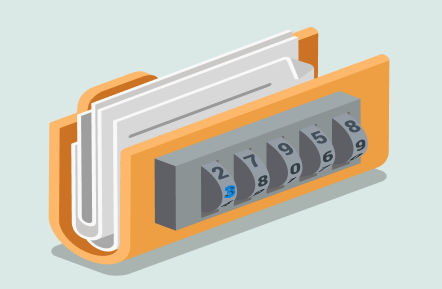Let me start by clarifying that I’m not a lawyer. This is not financial, legal or tax advice.
A little background…we built Stratus because we wanted a recurring buy to dollar cost average in Bitcoin. Our DCA bot programmatically buys price dips over the course of the week rather than one lump sum investment at the beginning of the week.
Because Stratus is a market maker on Coinbase, you benefit by paying less exchange fees too. The fee savings adds up to more purchasing power for your weekly budget amount.
Sign up for a free account here
Things were going really well until a few months ago, I woke up startled and the first thought that popped in my head was, “what happens to my crypto if I die?”
I panicked because I didn’t have an estate plan, like a Will or a legal Trust, and complicated instructions for my family to access wallets and transfer assets when I die.
If I died intestate (without a will), my wife and three kids wouldn’t know how to recover most of my crypto in cold storage. They’d eventually get access to my exchange account through probate, and would be forced to sell Bitcoin to cover the tax bill (thanks to a low cost basis).
If you’ve ever been the executor of an estate stuck in probate because there’s no will, it sucks.
How embarrassing. Let’s fix this.
Bitcoin Inheritance Planning (bitcoin estate planning?)
Bitcoin inheritance is a complex technical, legal and operational process that ensures your digital assets are transferred to the correct people without undue burden or excessive taxes.
Crypto assets, by design, are difficult for others to access.
Over the past few months we’ve been building out our crypto estate transfer service after extensive hands-on research and testing to find the best way to securely transfer Bitcoin private keys and addresses to my family.
I started by looking into the various 3rd party multi-signature options on the market. But everything I explored required storing and/or transferring sensitive data online and trusting people I’ve never met to control access to my Bitcoin keys.
It didn’t feel right, so we decided to combine 15+ years of software development and a deep understanding of Bitcoin to develop a crypto estate wealth transfer service. We work directly with the Bitcoin investors and their estate lawyer to create a customized crypto inheritance plan.
Together with an awesome team of financial, legal and tax experts we built a consulting practice for anyone transferring Bitcoin, stored online or offline in a cold wallet, as part of their estate.
At first I was skeptical of the potential cost then I discovered the tax benefits of assigning Bitcoin to my Trust which will reduce my beneficiary’s tax liability by ~67% due to the Step Up in Cost Basis.
It’s a no brainer.
If I died or became incapacitated today, my revocable Trust would initiate a sequence of events both analog and digital to assist my family recovering hot and cold storage wallets.
This is James Bond level legal protection that minimizes taxes and ensures a smooth transfer of crypto assets. The icing on the cake is that I didn’t have to trust a third party app or ‘service’ with safeguarding my keys or backup seeds.
I was client #1 and we learned a lot along the way.
What is a Crypto Estate Plan?
A cryptocurrency estate plan customized for Bitcoin (and alt-coins) typically consists a Will, a revocable Trust, and custom instructions (plan docs).
An estate succession plan important for Bitcoin investors due to:
- complexity of transferring digital assets
- tax implications
- cost basis
- current or future value of assets
- identification of accounts (physical and digital)
- recovery instructions for Bitcoin held in self-custody
Talk to a lawyer. If they don’t have a ton of experience with Bitcoin then have them call us. We will never ask for your private keys and will not have access to accounts.

Due to the complex and dynamic landscape of Crypto, a qualified estate planning professional will consult with you about:
- Appraisals, audits and record keeping.
- Inheritance tax laws affecting capital gains, penalties and depreciation.
- Structuring your Estate with a legal Revocable Trust and/or a Last Will & Testament.
- Letter of Last Instructions and other estate plan documents for wallet recovery.
There’s a lot of information to process, especially if you’re new to legacy planning.
What is a Revocable Trust?
A trust is a legal entity that holds assets for your beneficiaries according to specific terms outlined in a Trust Agreement.
A Revocable Trust can be amended over time at your discretion compared to an irrevocable trust which can not be amended.
What is a Last Will and Testament?
A Last Will and Testament defines what personal property your beneficiaries receive upon your passing. The Will is linked to your trust. A Last Will & Testament outlines your instructions and defines exactly how your assets will be distributed.
What is a Generation Skipping Tax Transfer (GST/GSTT)?
The best feature of the GST is a step up in cost basis. In my opinion, this is the real gravy for estate plans that include Bitcoin. Basically your cost basis for taxes is set on the day you die.
So, if you bought in at $10k, $20K or even $50k and Bitcoin is trading at $100k on the day you die your family’s cost basis for tax is set at $100k.
If you’re a wholecoiner, congrats! You’re part of the 1 Bitcoin Club and planning for the future is a no brainer.

Even if you have a modest amount of Bitcoin, it could mean a significant windfall in the future as adoption increases.
With a hard cap on supply of 21 million, there is only ~0.0025 bitcoin per human being that will ever be available.
It’s time to act like an adult.
If death is too morbid to think about, consider what would happen if you are medically incapacitated and forgot your wallet passphrase or location of your metal stamp. Disastrous!
Dying with your assets is NOT the way.
Glossary of Key Terms for Crypto Estate Planning:
- Testate Succession: An estate succession (transfer) with a valid Will in place.
- Intestate Succession: An estate succession without a valid Will, often resulting in a length probate process.
- Last Will & Testament: A Will is a legal document used for estate planning and is activated upon your death to execute your instructions on distributing assets.
- Pour-over Will: Upon your death, a pour-over is the Last Will which instructs the (estate) executor that any assets not included in the trust will be automatically transferred to the revocable living trust.
- Executor: The named executor to a Last Will and Testament receives instructions from the Will. Filing the will with probate is still required.
- Grantor: The person who created the legal trust.
- Trust: A legal document that enables the grantor to assign specific assets to the care of a trustee who manages the assets on behalf of the beneficiaries. A Living trust goes into effect prior to death and can avoid probate.
- Revocable Trust: A trust that can be changed or terminated by the person who created it (grantor).
- Irrevocable Trust: Once an Irrevocable Trust is created, this specific type of trust can’t be easily changed.
- Dynasty Trust: A trust type that transfers assets to a second generation (grandchildren for example) without risking gift, estate and/or Generation Skipping Transfer (GSTT) taxes which can incur a 40-50% tax rate depending on your state. Irrevocable Life Insurance Trusts (ILIT) can often be rolled into the Dynasty Trust to leverage the asset for generations to come.
- Funding or ‘Trust Funding’: The process of transferring assets to a trust.
- Naming and Titling: The living trust must be named following legal guidelines (ie – Satoshi Nakamoto Living Trust Dated 01/12/2009’. You can take this a step further, for maximum privacy, and name your trust with your initials and not your full name.
- Signed Statement of Transfer: Once the trust is established existing assets will be included with a Signed Statement of Transfer. Once established, future transactions and accounts (ie – Coinbase or Binance) must be titled in the name of the trust. Future transactions and accounts must be titled in the name of the trust. Real estate may be transferred with a quitclaim deed.
- Distribution of Assets: 12-18 months is the average time to dissolve a trust. Technically, a trust can remain for up to 21 years. Best to consult with a legal professional in your jurisdiction as regulations vary state by state in the US.
- Probate: The legal process for settling a deceased person’s estate which includes determining the validity of your will. This costly process can be avoided using a trust.
- Asset List: Maintain a record of the quantity held for each crypto asset, trade history, and custody (wallet location). In the case where you forgot about a wallet which was discovered after your death, a pour-over (see above) automatically rolls up the asset into your revocable trust.
- Beneficiary: You must name a beneficiary in your plan to avoid going through probate. The beneficiary is the recipient of your assets (including crypto) which avoid being classified as probate assets..
- Beneficiary Designation: is the act of naming your beneficiary who will inherit your assets. Similar to ‘transfer on death’, ‘pay on death’ or ‘Totten Trust’ designations.
- Digital Executor or Trustee or Successor Trustee: The named executor or trustee is responsible for managing and distributing your assets (including crypto) according to your wishes.
- Custodian: A crypto custodian is an OPTIONAL third-party service that manages your crypto while you are alive and after death to facilitate distribution of assets. An exchange may act as a custodian by default and you may choose to place trust in other entities (companies) to safeguard your crypto assets.
- Trustee: An individual, corporation or professional (the ‘successor’ or ‘successor trustee’) who has a fiduciary responsibility to act in the best interests of the beneficiaries by responsibility managing the trust and ensuring the grantor’s wishes are fulfilled.
- Administration: Estate Administration is the process of winding up and distributing financial assets. Crypto adds an additional layer of complexity including:
- Beneficiaries: Upon death, your Administer needs to identify and access your crypto storage locations. The next step is for the assets to be transfered, accepted, and safeguarded.
- Wallet Access: Securing your private keys is a fundamental concept of crypto. Having a plan to access, recover or restore a digital wallet containing cryptocurrency is critical. Mismanagement, loss or theft could result in your crypto becoming inaccessible and effectively lost forever.
- Legal and Regulatory Uncertainty: Bitcoin is a relatively new asset class which could make it difficult for TradFi institutions to act as a fiduciary if the estate contains crypto.
Benefits Revocable Trust in a Bitcoin Estate Plan
A legal trust is a fiduciary agreement made between you and a Trustee (third party designee) for the purpose of distributing your assets per your instructions.
While you’re living, the estate plan can be customized to provide an additional layer of protection like backing up your recovery seeds and recovering your cold wallet if you lose access to the wallet.
After death, or incapacitation, your Bitcoin Estate Plan kicks in to transfer assets and ensure secure access for your beneficiaries or heirs.
The main benefits of using a Revocable Trust for your Bitcoin succession plan include:
- Revocable trusts may be amended at any time offering flexibility.
- The trustee manages your finances if you become incapacitated avoiding court control.
- Access to locked accounts thanks to documented wallet recovery processes.
- Tax efficiency by reducing estate, gifting and transfer tax, minimizing state income tax, deferral.
- Protection from forced-heirship which in some states can determine who must be included in the succession plan and how the funds are to be spent.
- Avoidance of Probate and other court fees.
- Asset protection against seizure in the case of divorce, creditors or government.
- Privacy and security is maintained in most cases.
- Centralizing the ‘records of assets’ provides a single source of truth.
- It’s better for your mental health. A survey by the Cremation Institute found that 90% of crypto owners are worried about what will happen to crypto when they die.

Pro Tip: when seeking advice about your crypto estate planning, make sure that the qualified professional has experience in your jurisdiction as laws may vary.
For example, these assets are exempt from Probate in the state of Ohio:
- Real estate held in joint or survivorship form
- Assets and property with a transfer-on-death designation
- Insurance proceeds with a named beneficiary
- Payable-on-death bank accounts
- Assets held in trust
Failing to prepare for the inevitable is 100% avoidable.
Tax benefits of a revocable living trust
The step up in cost basis is arguably the most attractive benefit for using a revocable trust in your Bitcoin Estate Plan.
A ‘step up’ is a tax advantage for living trusts because it sets a cost basis for an asset valued on the day the grantor dies, not the day they acquired the asset.
If you have a low cost basis buying Bitcoin prior to 2018, the step up in cost basis could be the most significant reason to put your crypto in a trust.
Step-up in Cost Basis Bitcoin example:
You acquired and HODL 10 Bitcoin (BTC) on 01/01/2017 for a total of $10,000 given BTC-USD price on that day of $1,000.
On the day that you died, BTC-USD was $95,000.
When the estate settles two months later, for example, the beneficiary liquidates the 10BTC at BTC-USD $100,000 for gross proceeds equal to $1,000,000.
Without ‘step up’ your heirs would realize $990,000 in capital gains.
(($100,000-$1,000)*10BTC))
With the ‘step up’ your heirs would realize $50,000 in capital gains.
(($100,000-$95,000)*10BTC)
If the grantor is alive, a revocable living trust has little impact on taxes aside from normal 1040 reporting and doesn’t require a unique Tax ID or separate return filed.
This changes the day you die as your Trust automatically converts from revocable to irrevocable and the trustee must acquire a Federal Tax ID to start reporting taxes with Form 1041. Your successor trustee is financially responsible for protecting your heirs and may liquidate assets which can generate capital gains taxes.
Pro Tip: Assets that are inherited may automatically qualify for long-term capital gains taxes. Consult with your tax professional to confirm if this applies to your situation.
Risks of NOT having a Bitcoin Estate Plan with a Legal Trust
From our experience, setting up a Revocable Trust + Pour-over Will is the preferred method compared to transferring your Bitcoin through a Last Will and Testament.
75% of 18-54 year olds don’t have a valid will let alone a more sophisticated estate plan government by a legal Trust.
Version 1 of your Estate planning doesn’t have to be perfect. Having something in place is better than having nothing.
A Last Will is better than dying intestate (without a will) but without a Trust, your estate is exposed to the Probate process and carries considerable risks including:
- Loss of privacy due to public court records which places a bullseye on your heirs for shady people to take advantage of them because of their newly inherited Bitcoin stack.
- Increased legal costs due lengthy Probate procedures.
- Undue stress for your next of kin.
- Inability to locate accounts potentially resulting in loss of funds.
- Mismanagement of wallet/account recovery and backup seeds.
- Attack vectors like hacking, phishing, dusting, and physical breaches.
- Ambiguous and evolving tax and regulatory compliance
The amount of time and cost required to set up an Bitcoin Estate Plan with a Trust must be compared with the risks of not having an estate plan.
Consider your time preference for money and discuss these risks with your lawyer or qualified professional. Contact team@stratus.io with any questions.
How do I create a Bitcoin Inheritance Plan?
Your Bitcoin Inheritance strategy requires careful planning and coordination.
These are the six steps you should expect to take when creating your crypto estate plan:
- Conduct due diligence and select a qualified estate attorney.
- Formally engage an attorney and provide accurate information.
- Appoint a Successor Trustee for your Bitcoin Trust.
- Customize your Plan Docs for Bitcoin Estate Plan.
- Review, Sign and Execute the final Estate Documents.
- Fund the Trust With Bitcoin.
Step 1: Engage a Qualified Attorney to Create Your Estate Plan
Use your network to get an introduction to an Estate Lawyer who specializes in digital assets like Bitcoin within your jurisdiction. There’s no substitute for hands-on experience working with crypto to set up an efficient, secure, private Estate Plan.
Questions to ask your qualified Bitcoin Estate Planner:
- Tell me about your experience setting up estate plans that include Bitcoin, alt-coins and other digital assets.
- Are you licensed in my state?
- In what capacity do you assist with executing my estate plan?
- Do you carry malpractice insurance?
- What is the fee structure (hourly, flat fee, both)?
- How long does this process take once we get started?
- What are the legal considerations for my estate plan depending on where I live?
- What information should be provided in the estate planning documents?
- Do I need to provide reporting on trade history to establish a ‘cost basis’?
- Should my crypto be held in a trust, a will or a combination of the two?
- Do you recommend a pour-over will to cover any assets that weren’t included in the Trust?
- Is the trust funded by Bitcoin and/or does the trust include instructions on how to access and recover your Bitcoin?
- Is forced-heirship addressed in the Trust document?
- Does a legal Trust address restrictions on the trustee’s ability, under the Prudent Investor Rule to liquidate Bitcoin? For example, let’s say we’re in a bear cycle and the trustee deemed Bitcoin too risky and volatile.
- What do you recommend for designating beneficiaries who are minors?
- Are there restrictions, like a ‘5-year lookback’, apply to Bitcoin held in the trust? How does it work?
- What information might become public knowledge and how do I protect everyone’s privacy?
- How does my crypto estate plan ensure safe and secure transfer to my heirs?
- Does it matter whether my Bitcoin keys are managed by custodial 3rd party accounts (e.g. Coinbase or Binance) or non-custodial cold storage or software hot wallets (e.g. Wasabi, ColdCard)? For example:
- If crypto keys are held on a device, are they considered tangible personal property upon her passing, and not become part of the trust?
- How will the successor trustees, beneficiaries, and/or fiduciaries be made aware of my Bitcoin accounts upon my death?
- What is the order of events you will execute to ensure this happens in a timely manner?
- What are the security protocols for the designated beneficiary to access and transfer assets? Who defines these methods? For example:
- Tech transfer: Hot wallets, smart contracts, multi-sig, and custodial.
- Offline transfer: physical storage or safe, safe-deposit box, 3rd party custodian, encrypted offline devices like a flash drive or hardware wallet.
- What are the best practices for writing a letter of instruction for accessing Bitcoin held on an exchange, mobile wallet or cold storage?
- What conditions can I customize for the inheritance plan? For example:
- Can I dictate how the crypto accounts are managed or accessed prior to distribution?
- How do I dictate how the crypto accounts are protected after they are transferred?
- Should I use an Incentive Trust to define benchmarks for distributions of my digital assets?
- Who will have access to documents that may contain partial or full recovery seeds?
- Who will have access to other account information?
- I have concerns about disclosing my recovery seed and keys. What do you recommend?
- What internal controls do you have in place to protect against physical and/or digital theft, fraud, negligence, and hacking?
- How is access to electronic devices, computers, passwords, and hard drives granted to the trustee.
- What specific access controls are able to be granted or restricted?
- What non-crypto digital death accounts can I control access to, like legacy contacts on Facebook.
- What is your experience with using Multi-sig for beneficiary account access?
- What is your experience with using miniscript time locks to automatically transfer Bitcoin to my heirs?
- Have you or anyone on your team personally transacted with Bitcoin? What is your personal experience with hot wallets, cold storage and safe self custody?
- What do you recommend to make this process as easy as possible for my heirs?
Remember, not all ‘professionals’ are crypto experts.
After the meeting, conduct your own due diligence based on the attorney’s responses and your confidence in their ability. Do your own research (DYOR) to vet your lawyer before signing on the dotted line.
Step 2: Engage a Qualified Attorney to Create Your Estate Plan
After the initial meeting, you’ll likely receive an engagement letter which serves as a legally binding agreement outlining the fee for service to prepare your Bitcoin Estate Plan.
Engage with the attorney or continue searching until you are confident in the attorney’s ability to handle your assets according to your wishes.
Provide all necessary documentation, instructions and information as requested by the attorney. This includes account numbers, passwords, recovery seeds and instructions to execute specific duties.
Pro Tip: It’s ok to ask your estate planner about their internal controls and procedures for dealing with sensitive information. Ask about what extra measures are in place for digital assets like Bitcoin or Ethereum held in trusts.
You’ll need to provide the contact information and procedures for all trusted parties involved in executing the instructions of your estate plan.
Review the obligations, considerations and responsibilities of your attorney if they have a specific role, like signing a multi-sig wallet, to execute the estate plan upon your death.
Step 3: Appoint a Successor Trustee for your Bitcoin Trust
The trustee (or executor) should be a person you know, like and trust to respect your wishes.
Reliability, common sense and good judgment are also important to consider when selecting your successor trustee.
Adult children, family members or close friends may be better suited than a spouse who has a similar life expectancy.
If you don’t have any reliable options, consider hiring a professional executor for your Bitcoin Inheritance plan. Look for Certified Trust and Fiduciary Advisor (CTFA) or Certified Estate and Trust Specialist (CES) credentials.

Hiring a professional trustee who understands probate, tax law, and audits can cost between 1-5% of the estate value. Depending on your jurisdiction, this could be comparable to your state’s statutory fee which would be paid to a family member acting as executor.
The lawyer selected to draw up your estate plan docs is often used as the successor executor but you could conduct separate due diligence for this role.
Understanding Bitcoin self-custody, security and transacting on various blockchains is a skill-set that hasn’t permeated traditional estate planners.
Once you decide who the executor or trustee will be, it’s time to legally nominate this person.
Do your own research, and remember that you can make some changes to this over time.
Step 4: Customize your Plan Docs for Bitcoin Estate Plan
One of the services we offer at Stratus is working directly with our clients and their estate planning attorneys to advise on creating clear plan docs for crypto estate plans that utilize a revocable trust.
For example, a document detailing the Plan for Accessing Crypto must be included in your estate portfolio. You should describe, in detail, how the successor trustee will access your crypto upon your death.
This plan document is meant to safely transfer your crypto assets to the trustee. Important information like the physical or digital location of accounts, login/access details, contact information, and step by step detailed instructions depending on who has custody of your keys.
Of the 15 ways to transfer Bitcoin when you die, the two most common options are:
- Sharing the physical location of the written (or stamped) backup recovery seed.
- A safe-deposit box, titled in name to your Trust, containing your device, backup recovery words, or a partial seed.

Include the full/partial recovery seed or passphrase as part of a revocable trust may shield your crypto estate from government seizure, as long as the trust structure complies with relevant laws and regulations.
Bonus: While you’re living, these instructions could also be used as redundancy for securing your recovery seeds.
Ensuring that no one person has complete control of your recovery seeds reduces the risk of creating a single point of failure.
Even though the crypto market is technologically advanced, old school paper estate transfer methods are still the best method to preserve generational wealth.
Example Language used in a Trust to transfer Bitcoin keys:
“Upon my death, I direct my executor to transfer ownership of all cryptocurrency holdings to the trustee of the [name of trust] trust. The trustee shall have the power to access and manage these holdings on behalf of the trust beneficiaries, in accordance with the terms of the trust agreement. The executor shall also provide the trustee with any necessary private keys required to access and manage these holdings. The trustee shall keep these private keys and passphrases in a secure location and use them only for the purposes of managing the trust’s cryptocurrency holdings.”
Step 5: Review, Sign and Execute the Bitcoin Estate Documents
Your lawyer will prepare the estate documents for review and signature. If you already have a Bitcoin Inheritance plan, you can amend those docs to include anything you’ve learned from reading our posts.

Prior to signature, conduct a dry run of your instructions which may include transferring Bitcoin and restoring wallets. You can use ‘test’ credentials if multiple individuals are participating. Next, conduct a private test using real keys and seeds prior to finalizing your instructions.
Review the attorney’s internal controls and policies for security, privacy and transfer of responsibility if necessary.
Agree on the schedule for periodic review to address any changes and update your estate plan.
For example, keep your inheritance plan up to date by conducting an annual review. Your lawyer will be happy to get paid for their time to answer questions or make amendments like:
- Access instructions or locations may change. For example, changing the location of your recovery seed or adding a new hardware device for cold storage.
- If the value of your Bitcoin stack increases or decreases, you may consider adding new beneficiaries like a scholarship fund or reducing an heirs percentage.
- Reviewing the named beneficiaries in your asset accounts (401k, Deed, Equites).
- If you’re executor is a family member, consider if it makes sense in the future to change to a professional executor especially if their fee is the same as your state’s statutory fee for the executor.
Pro Tip – You probably don’t need to meet with your lawyer every year. You should schedule a recurring calendar event that reminds you to reach out to your estate planner every year. If you don’t need to meet, just send an email to your attorney acknowledging no update and wish them well.
Maintaining communication with your estate lawyer helps to build a relationship based on trust and transparency.
Step 6: How to Fund a Revocable Trust With Bitcoin
A revocable trust only distributes assets that have been transferred to the Trust through a process called ‘funding’. This type of trust is considered a Grantor Trust and for tax purposes, assets in the trust are still considered owned by the trust owner (grantor).
According to FindLaw, there are many ways to fund a trust including:
- Deeds
- Title transfer
- Assignment of ownership
- Opening new accounts
- Life Insurance
- Assignment of rights
- Incorporating a pour-over will
- Naming the trust as a beneficiary
Individual state laws may vary but generally, there are four ways to fund a trust with Bitcoin:
- Custodial (hot) hosted wallets: Crypto Exchanges, like Coinbase, may offer a way to create an account in the name of your trust.
- Depending on the financial institution, you will have to complete some paperwork and may be assigned a new account number when you rename your account(s) to finalize the change in ownership.
- Non-Custodial (cold): Hardware Wallets have no concept of ownership. Whoever is in possession of the private key or recovery seed controls the Bitcoin addresses.
- You will be asked to list the coins stored in each wallet(s) and assign ownership of the wallets to the trust. Next, you’ll need to think long and hard about how to disclose the location of the wallets and the access method the trustee will communicate to your beneficiaries so they can recover your crypto.
- For example, you could give the trustee 12 words and store the other 12 words in a safe-deposit box titled in the name of the Trust.
- Or maybe you trust a third party iphone app to keep a copy of your full or partial seed. Stratus created the 1 Bitcoin Club to help guide you through this process and avoid unnecessary risk. Making the wrong decision could mean the difference in generational wealth or losing your Bitcoin stack forever due to theft or neglect.
- Limited Liability Company (LLC): This is a more complicated funding method. A valid LLC’s Operating Agreement sets the rules for how the manager(s) and their membership interest. If you use a 3rd party manager, then your designated trustee would be responsible to monitor the 3rd party. Consult a qualified professional to learn more.
- A benefit to an LLC is that your assets don’t need to be sold quickly after your passing. The counter to this argument is that if your heirs have the same conviction as you, they can acquire Bitcoin with their fiat minus any withholdings for the capital gains tax. This is one way to take money off the table and get back in the game.
- A simpler alternative leveraging an LLC could be storing your cold wallets in safe-deposit box(es) titled to an LLC so your crypto passes outside of probate. Consult with a qualified professional who can answer legal, tax, and financial questions.
- Bitcoin ETF: If you invested in a Bitcoin ETF instead of buying Bitcoin directly, you can also fund the trust by naming the brokerage account in the name of the trust. Work with your estate attorney to hammer out the details.
Pro Tip: Never include your crypto, recovery seed, private keys, or wallet as tangible personal property. Bequeathing crypto assets as tangible property negates the instructions of your Trust and your assets could unintentionally end up split between the wrong beneficiaries.
Having a pour-over will helps to roll up any assets that weren’t specifically identified and in my opinion is a must have as part of your Bitcoin Estate Plan.
Can I trust my lawyer not to steal my crypto?
One of the best things about Bitcoin is that it’s trustless. The Bitcoin network is programmed to enable participants to achieve consensus without the need of a trusted third party, like a bank.
Satoshi gave us Bitcoin after the Great Recession of 2008, when trust in banks was at an all time low. “Trust, but verify” has been the battle cry of the Bitcoin community ever since.

The decentralized, peer-to-peer network demands vigilance and a personal security plan to protect Bitcoin.
We’re on high alert. Wary of getting hacked by a Bitcoin dusting attack or phished out of your coins.
That same level of scrutiny carries over when I hear folks asking if they should trust their lawyer.
Suggestions to protect your estate from legal risk:
- Don’t put all your eggs in one basket. Make sure more than one party, including your lawyer, is required to complete an action.
- Divide responsibilities between different trusted individuals and your estate lawyer.
- Monitor and audit your accounts to make sure there are no unauthorized transactions or changes.
- Restrict access to only what is necessary for your estate lawyer to fulfill their responsibility. Clearly define roles and responsibilities in writing.
- Consider independent oversight and accountability by appointing a 3rd party, like a family member or another lawyer, to review the actions of your estate lawyer.
- Establish regular communication and periodic reviews will help with transparency.
- Document everything. Be sure that legal documentation is used to prevent ambiguity.
- Confirm what information is protected by attorney-client privilege.
Pro Tip: Prior to transferring any materials to a lawyer for custody, seal the contents in an opaque envelope and place into a tamper-evident bag. Instruct your lawyer to NOT reveal the information unless it’s in person to you or with a specified heir pursuant to your instructions upon death or incapacitation.
You should only work with a lawyer that you trust. In the unlikely event your trust is breached, having controls in place to prevent theft or fraud.
Preserve your legacy by applying what you learned in this post to customize an estate plan for Bitcoin inheritance.
Disclaimer: Stratus does NOT provide investment, legal or tax advice. All information in this article is for educational purposes and should not be interpreted as investment, legal or tax advice. The opinions expressed are those of the author for informational purposes and neither Stratus nor the author are liable for any errors, inaccuracies or omissions. Digital assets, such as cryptocurrencies or decentralized finance, present unique risks for investors. For investment, legal, tax, or other financial guidance you should consult your own advisor.